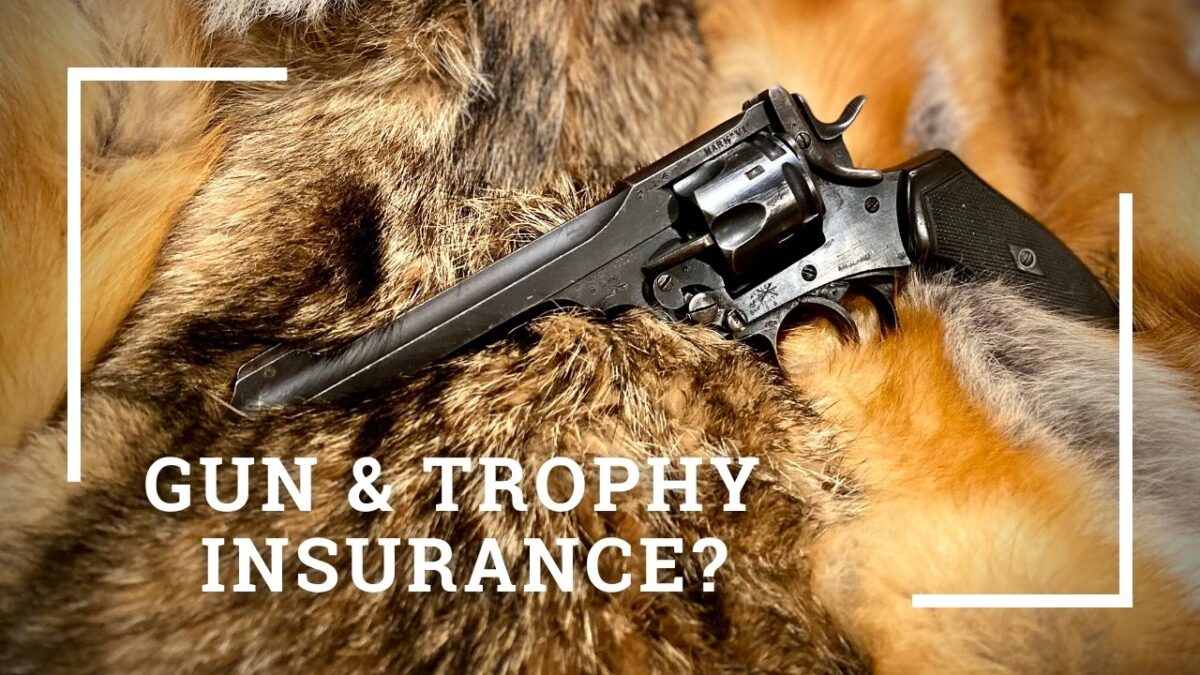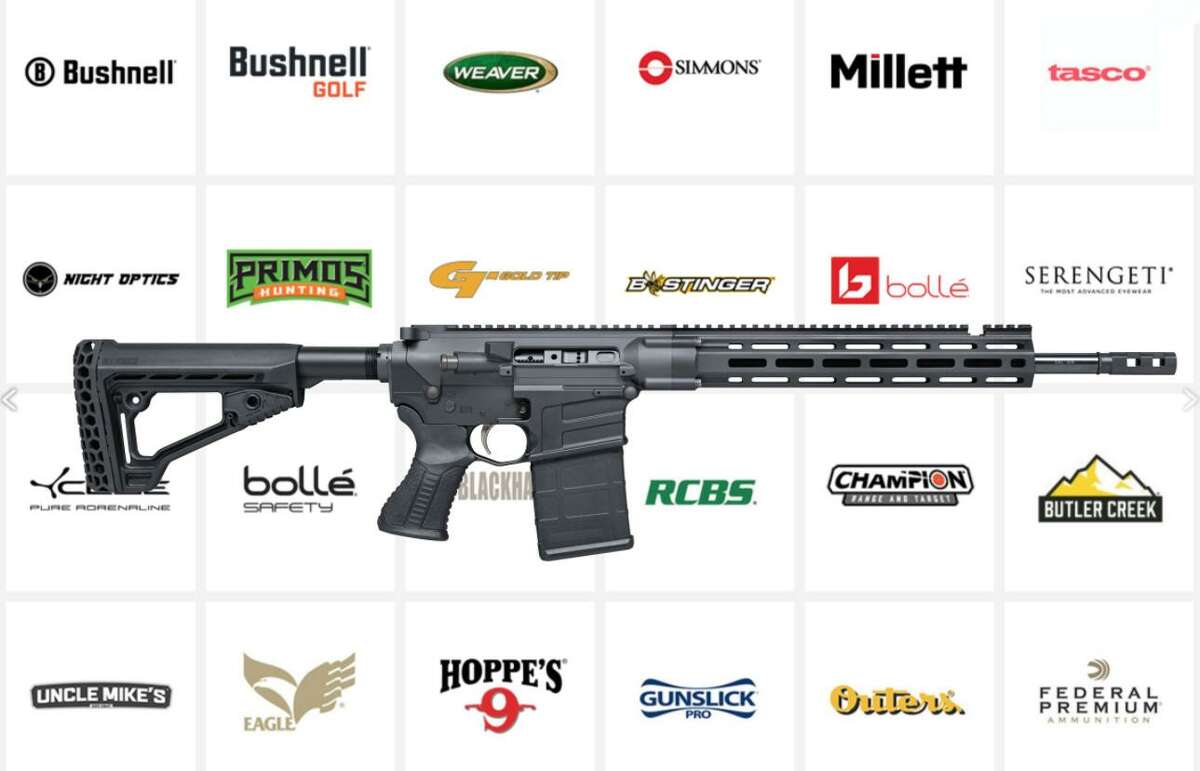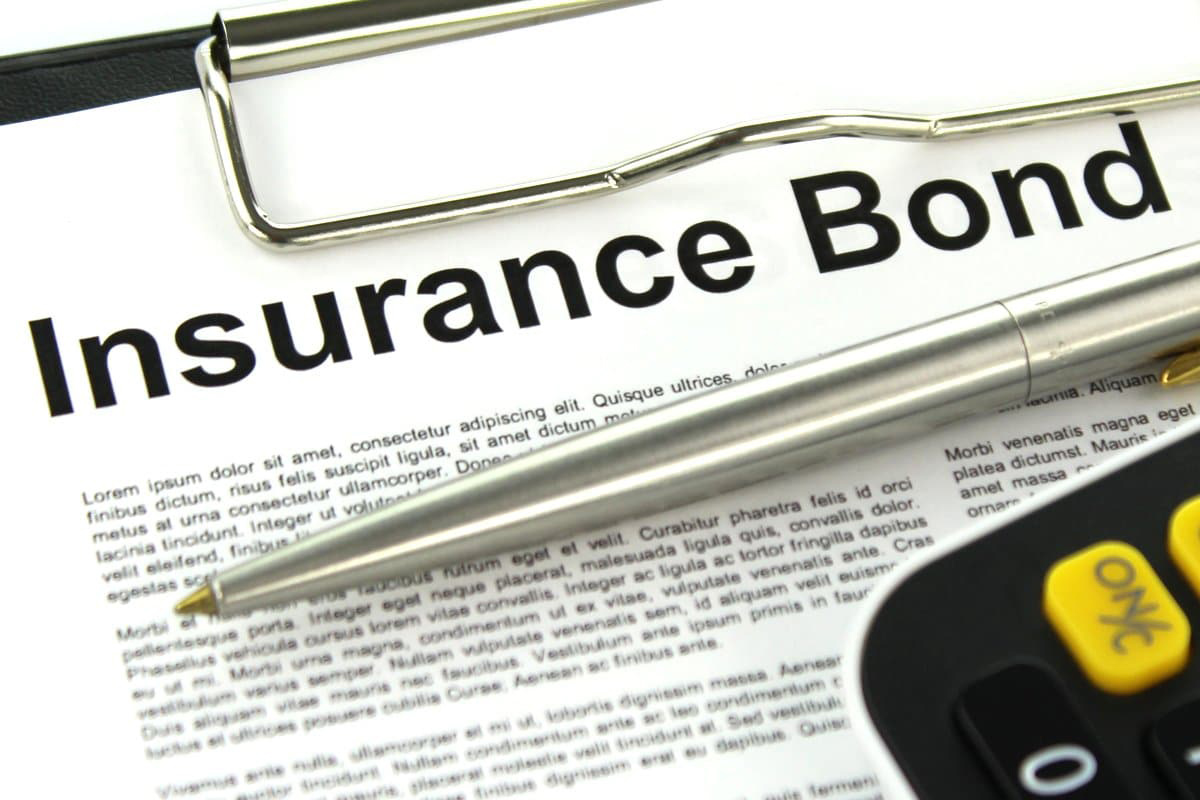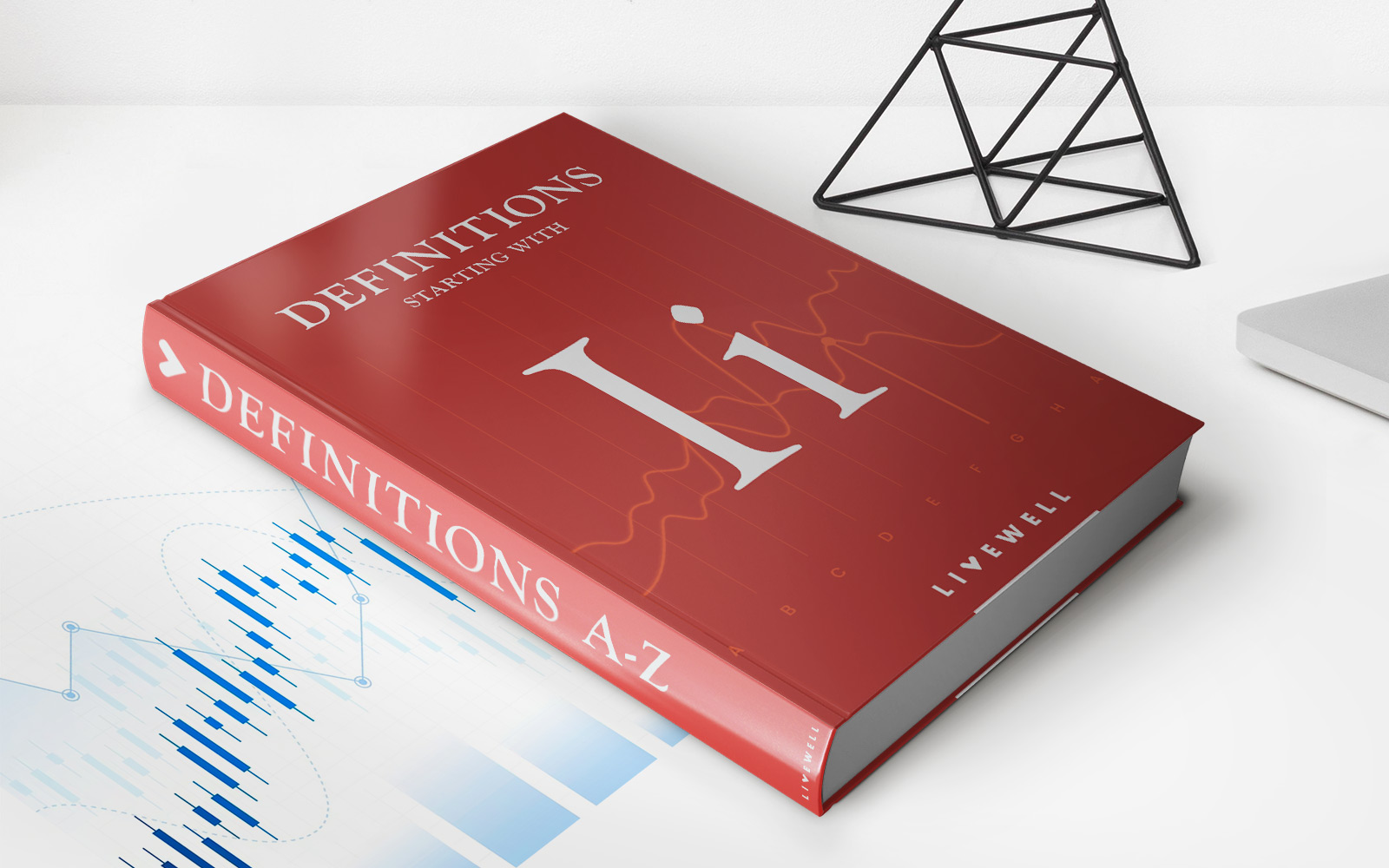

Finance
What Is Gun Insurance
Published: November 12, 2023
Learn about gun insurance and how it can financially protect you. Get insights on finance options for gun owners.
(Many of the links in this article redirect to a specific reviewed product. Your purchase of these products through affiliate links helps to generate commission for LiveWell, at no extra cost. Learn more)
Table of Contents
Introduction
Welcome to the world of gun insurance—a topic that is both controversial and crucial in our society today. Gun ownership is a deeply ingrained right for many individuals, but along with that right comes the responsibility to ensure the safety and well-being of oneself and others. Gun insurance is a form of protection that seeks to address this responsibility by providing coverage in case of accidents, theft, or other incidents involving firearms.
While the concept of insuring guns may seem relatively new, the history of gun insurance can be traced back to the 1800s. Nowadays, with the growing number of firearms in circulation and increased concerns about gun-related incidents, the demand for gun insurance has become more prominent. This insurance coverage aims to provide financial protection and peace of mind for gun owners, as well as mitigate potential risks associated with firearms.
Gun insurance operates similarly to other forms of insurance, such as auto or home insurance. It typically involves a policyholder paying regular premiums to an insurance company in exchange for coverage and benefits outlined in the policy agreement. In the event of an incident involving a gun, the insurance company will provide compensation or assistance, depending on the terms of the policy.
The purpose of gun insurance is twofold: to protect gun owners from financial liabilities resulting from accidents or intentional harm caused by their firearms, and to compensate victims or affected parties in case of incidents involving firearms. By having gun insurance, individuals can take proactive measures to ensure responsible gun ownership and reduce the potential costs and legal ramifications that may arise from gun-related incidents.
In the next sections, we will delve deeper into the types of gun insurance available, the coverage and benefits they provide, the factors that influence insurance premiums, and how one can obtain gun insurance. We will also explore the arguments put forth by both proponents and critics of gun insurance, providing a balanced perspective on this contentious issue.
Definition
Gun insurance, also known as firearm insurance or gun liability insurance, is a specialized form of insurance coverage designed to protect gun owners and mitigate the financial risks associated with firearm ownership. It provides coverage for various incidents involving firearms, including accidents, theft, damage, or any other liability that may arise from gun-related activities.
Gun insurance is typically a voluntary insurance coverage option that is separate from homeowners or renters insurance policies. It specifically focuses on providing financial protection in relation to the ownership, possession, and use of firearms. While gun insurance is not legally mandated in most jurisdictions, it may be required by some gun ranges, shooting clubs, or for certain occupations involving firearms.
The purpose of gun insurance is to safeguard gun owners from potential legal liabilities and financial burdens that may occur in the event of an accident or injury involving firearms. This insurance coverage can help cover legal expenses, settlements, medical costs, property damage, and loss of income resulting from incidents related to firearms.
Gun insurance policies typically have specific terms and conditions that outline the coverage limits, exclusions, and obligations of both the insured gun owner and the insurance company. These policies may vary in scope and coverage depending on the insurer and the specific needs of the policyholder.
It is important to note that gun insurance does not act as a replacement for responsible gun ownership and adherence to local laws and regulations. It is meant to complement existing safety measures and legal requirements surrounding firearm ownership. Gun owners are still responsible for following proper safety protocols, storing firearms securely, and ensuring compliance with local firearms laws.
As the debate on gun control and firearms liability continues, the definition and understanding of gun insurance may evolve. It is advisable for gun owners to consult with insurance professionals and legal experts to understand the specifics of gun insurance in their jurisdiction and evaluate the options available to them.
Purpose of Gun Insurance
The primary purpose of gun insurance is to provide financial protection and mitigate risks associated with gun ownership. It serves as a safety net for gun owners, offering coverage and benefits in various situations. Here are some key purposes of gun insurance:
- Protection against financial liabilities: Gun insurance helps to protect gun owners from potential financial losses resulting from accidents, injuries, or property damage caused by firearms. In case of a mishap, the insurance policy can cover legal expenses, medical costs, property repairs, and other related expenses, reducing the financial burden on the gun owner.
- Compensation for victims: Gun insurance also ensures that victims or affected parties involved in gun-related incidents are adequately compensated. Whether it’s covering medical bills, loss of income, or other damages, gun insurance helps provide restitution to those who have been harmed or suffered losses as a result of a firearm incident.
- Promotion of responsible gun ownership: Gun insurance encourages responsible gun ownership by emphasizing the importance of taking precautions and practicing safe handling and storage of firearms. By requiring gun owners to carry insurance, it adds an extra layer of accountability and incentivizes individuals to prioritize safety and exercise caution when using firearms.
- Risk management: Gun insurance contributes to better risk management by encouraging gun owners to evaluate potential risks associated with firearm ownership and take appropriate measures to mitigate those risks. This may include proper training, implementing security measures, or adopting safer storage practices, all of which contribute to a safer environment for both gun owners and the general public.
While the purposes of gun insurance are primarily centered around financial protection and risk mitigation, it is important to recognize that insurance coverage alone cannot fully prevent gun-related incidents. Responsible gun ownership, adherence to safety protocols, and comprehensive gun control measures still play pivotal roles in ensuring the overall safety and well-being of individuals and communities.
Understanding the purpose of gun insurance allows gun owners to make informed decisions regarding their insurance options and take necessary steps to protect themselves and others. Additionally, it opens up discussions around responsible gun ownership, gun control policies, and the broader societal impact of firearms in our communities.
Types of Gun Insurance
Gun insurance comes in various forms, each designed to cater to different needs and circumstances of gun owners. Here are some common types of gun insurance:
- Liability Insurance: Liability insurance is one of the most common types of gun insurance. It provides coverage for any damages, injuries, or legal liabilities resulting from the use of firearms. This type of insurance protects the gun owner in case they are held responsible for causing harm or property damage while using their firearms.
- Accidental Discharge Insurance: Accidental discharge insurance focuses specifically on accidental discharge incidents. It provides coverage for any accidental firing of a gun that results in injury or property damage. Accidental discharge insurance is particularly useful for individuals who frequently handle firearms or participate in shooting sports.
- Theft or Loss Insurance: Theft or loss insurance protects gun owners in the event their firearms are stolen, lost, or damaged beyond repair. It provides compensation to cover the cost of replacing the stolen or lost firearms. This type of insurance is important for those who own valuable or collectible firearms.
- Concealed Carry Insurance: Concealed carry insurance is designed specifically for individuals who carry firearms for self-defense purposes. It provides coverage for legal expenses and possible civil or criminal liabilities arising from the use of a concealed firearm in self-defense situations.
- Gun Collection Insurance: Gun collection insurance is tailored for individuals who own extensive collections of firearms. It provides coverage for the entire collection, including rare or valuable firearms. This type of insurance offers protection against theft, accidental damage, or loss of the entire collection.
It’s important for gun owners to evaluate their specific needs and assess the risks associated with their firearms to determine which type of gun insurance coverage is most suitable. Some insurance providers may offer comprehensive packages that combine multiple forms of coverage, while others may allow gun owners to customize their policies based on their unique requirements.
When selecting gun insurance, it’s crucial to carefully review the policy terms and conditions, exclusions, coverage limits, and deductibles. Gun owners should also consider factors such as the reputation and financial stability of the insurance company, as well as any additional benefits or services provided with the policy.
By understanding the different types of gun insurance available, gun owners can make informed decisions and choose the coverage that best aligns with their needs and priorities.
Coverage and Benefits
Gun insurance provides various types of coverage and benefits that help gun owners protect themselves and others in case of incidents involving firearms. The specific coverage and benefits may vary depending on the type of gun insurance policy and the terms set by the insurance provider. Here are some common coverage and benefits associated with gun insurance:
- Liability Coverage: Gun insurance typically includes liability coverage, which protects the gun owner if they are held legally responsible for causing injury or property damage with their firearm. This coverage can help cover legal expenses, settlements, and damages awarded to the injured party.
- Property Damage Coverage: Gun insurance can provide coverage for damages caused to property by firearms. This includes accidental damage to personal property or damage caused during hunting or shooting activities. The policy may outline the specific limits and situations in which property damage is covered.
- Medical Expense Coverage: In the event that a firearm accident results in bodily injury, gun insurance may offer medical expense coverage. This coverage can help cover medical bills, hospitalization costs, surgery expenses, rehabilitation, and other necessary medical treatments related to the incident.
- Legal Defense Coverage: Gun insurance policies may include coverage for legal defense costs in case the insured gun owner faces a lawsuit or legal action following a gun-related incident. This coverage can help pay for attorney fees, court expenses, and other legal costs associated with defending the insured party’s case.
- Stolen or Lost Property Coverage: Gun insurance policies that include theft or loss coverage provide compensation in case firearms are stolen, lost, or damaged beyond repair. This coverage ensures that gun owners can replace their firearms and recoup their financial loss.
- Personal Injury Protection: Some gun insurance policies offer personal injury protection, which provides compensation for the policyholder’s own medical expenses and lost wages resulting from a gun-related incident, regardless of who is at fault.
It’s important for gun owners to carefully review their insurance policy’s coverage details to understand the extent of protection they have. They should also be aware of any limitations or exclusions specified in the policy, such as specific types of firearms not covered or restricted activities that may void the policy’s coverage.
The coverage and benefits offered by gun insurance can provide much-needed financial support and assistance during challenging times. They help gun owners fulfill their responsibility to protect themselves, their loved ones, and the community while mitigating the potential financial impact of gun-related incidents.
Factors Affecting Gun Insurance Premiums
When determining the premiums for gun insurance policies, insurance providers consider various factors that influence the level of risk associated with insuring firearms. These factors can affect the cost of coverage and the overall insurance premiums. Here are some key factors that can impact gun insurance premiums:
- Type of Coverage: The type of gun insurance coverage selected by the policyholder plays a significant role in determining the premium. Different types of coverage, such as liability insurance, theft protection, or accidental discharge insurance, may have varying levels of risk and associated costs.
- Value of Firearms: The total value of the insured firearms is an important factor in calculating premiums. Higher-value firearms typically require higher coverage limits, which can result in higher premiums. Insuring a collection of rare or valuable firearms will generally increase the cost of the policy.
- Location: The geographical location where the insured firearms are kept or used can impact the insurance premium. Areas with higher rates of gun-related incidents or crime may influence the premium due to the increased risk associated with insuring firearms in such locations.
- Security Measures: The security measures put in place to protect firearms can affect the insurance premium. Installing secure gun safes, employing alarm systems, or utilizing other safety devices can potentially reduce the risk of theft or unauthorized access, consequently lowering the premium cost.
- Experience and Training: The experience and training of the gun owner may also be taken into account. Insurance providers may offer discounted premiums for individuals who have completed certified gun safety courses or have prior experience in handling firearms safely, as it can reduce the overall risk.
- Claims History: The claims history of the insured individual can influence the premium. A history of prior claims or incidents involving firearms may result in higher premiums, as it indicates a higher risk for future claims.
- Policy Limits and Deductibles: The coverage limits and deductible amount selected by the policyholder can impact the premium. Higher limits and lower deductibles typically result in higher premiums, as the insurance company assumes greater potential liability.
It’s important for gun owners to discuss these factors with their insurance provider and understand how they can influence the insurance premiums. Comparing quotes from different insurers and exploring available discounts or package deals can also help gun owners find affordable coverage that meets their needs.
While premiums are influenced by several factors, it’s essential for gun owners to prioritize comprehensive coverage that adequately protects them and their firearms, even if it means paying slightly higher premiums. Investing in appropriate insurance coverage can provide peace of mind and financial security in the event of a gun-related incident.
How to Obtain Gun Insurance
To obtain gun insurance, gun owners can follow these general steps:
- Research Insurance Providers: Start by researching insurance providers that offer gun insurance coverage. Look for reputable companies with experience in providing firearm-related insurance policies. Compare the coverage options, policy terms, and customer reviews to find a provider that suits your needs.
- Reach out to Insurance Companies: Contact the insurance companies you are interested in to inquire about their gun insurance policies. Speak with their representatives or agents to get more information about the coverage specifics, premiums, and any requirements or documents needed to proceed with the application.
- Evaluate Coverage Options: Consider the different types of gun insurance coverage available and choose the option that aligns with your needs and priorities. Determine the coverage limits, deductibles, and additional benefits offered by each policy to make an informed decision.
- Provide Required Information: To initiate the application process, you will need to provide the necessary information to the insurance company. This typically includes personal details such as your name, address, contact information, and details about the firearms you want to insure.
- Assess Risk Factors: Insurance providers may ask about specific risk factors such as your claims history, experience and training with firearms, and how your firearms are stored and secured. Be prepared to answer these questions honestly as they may impact the premium cost.
- Review and Sign the Policy: Once you have selected a policy, carefully review the terms and conditions, coverage limits, exclusions, and other policy details. If everything looks satisfactory, sign the policy agreement and pay the premiums as required by the insurance company.
- Maintain Communication: Stay in touch with your insurance provider and inform them of any changes in your circumstances, such as acquiring new firearms or changes in your storage methods. Regularly review your policy to ensure it continues to meet your needs.
It’s worth noting that the specific process for obtaining gun insurance may vary depending on the insurance provider and local regulations. Some states or jurisdictions may have additional requirements or regulations pertaining to gun insurance, so it’s important to familiarize yourself with the relevant laws in your area.
Working with an insurance agent or broker who specializes in gun insurance can also be helpful. They can guide you through the process, answer any questions you may have, and assist in finding the most suitable coverage for your needs.
By taking the necessary steps to obtain gun insurance, gun owners can protect themselves, their firearms, and others involved in gun-related incidents, ensuring responsible gun ownership and peace of mind.
Proponents of Gun Insurance
Proponents of gun insurance argue that it is a necessary and responsible measure to ensure the safety of individuals and communities. Here are some key arguments put forth by proponents of gun insurance:
- Financial Responsibility: Proponents argue that gun ownership comes with a significant responsibility to mitigate the risks associated with firearms. They believe that gun insurance promotes responsible gun ownership by holding individuals accountable for the potential harm caused by their firearms.
- Protection for Victims: Gun insurance provides a means of compensation for victims or affected parties in the event of gun-related incidents. Proponents assert that gun insurance helps ensure that innocent individuals who are injured or suffer damages due to firearm incidents are provided with the necessary support and financial restitution.
- Risk Reduction: The availability of gun insurance encourages gun owners to take extra precautions and implement safety measures to minimize the risk of accidents or misuse of firearms. Proponents argue that the presence of insurance coverage acts as an incentive for gun owners to prioritize safe storage, proper training, and responsible use of firearms.
- Reduced Burden on Taxpayers: In situations where gun-related incidents occur, there can be significant costs associated with medical expenses, legal fees, and property damages. Proponents claim that by requiring gun owners to carry insurance, the financial burden is shifted away from taxpayers and onto the individual gun owner and their insurance provider.
- Promotion of Gun Control Measures: Gun insurance advocates often argue that it can be a tool to indirectly promote gun control measures. They contend that by imposing insurance requirements, it allows governments to establish regulations and enforce responsible gun ownership standards, contributing to a safer and more regulated firearms environment.
Proponents of gun insurance recognize that while it may not completely eliminate gun-related incidents, it adds an additional layer of protection and accountability. They believe that responsible gun owners should be willing to accept the responsibility of mitigating potential risks and ensuring financial protection for themselves and others.
It is important to note that the opinions regarding gun insurance vary, and while some advocate for its implementation, others strongly oppose its requirement. Understanding both sides of the debate allows for a more comprehensive examination of the issue and fosters meaningful discussions surrounding gun ownership and responsibility.
Critics of Gun Insurance
While gun insurance has its proponents, there are also critics who raise valid concerns and arguments against its implementation. Here are some common criticisms of gun insurance:
- Burden on Law-Abiding Gun Owners: Critics argue that requiring gun insurance places an additional financial burden on law-abiding gun owners who already exercise responsible firearm ownership. They argue that it penalizes responsible individuals and may make gun ownership less accessible for lower-income individuals.
- Ineffectiveness in Preventing Gun-related Incidents: Some critics question the effectiveness of gun insurance in preventing gun-related incidents. They argue that individuals who negligently or intentionally cause harm with firearms may not be deterred by insurance requirements, as they may already have a disregard for laws and regulations.
- Privacy and Second Amendment Concerns: Critics raise concerns about privacy and Second Amendment rights. They argue that requiring gun owners to disclose firearm ownership details and their insurance policies infringes on their privacy. Additionally, they believe mandatory insurance could be seen as an additional burden or deterrent to exercising Second Amendment rights.
- Cost and Availability: Critics express concerns about the potential cost and availability of gun insurance. They worry that mandating gun insurance may lead to increased premiums, making it unaffordable for some gun owners, particularly those in marginalized communities. Additionally, they question the availability of insurance coverage in areas with higher rates of gun-related incidents.
- Responsibility Shift: Some critics argue that gun insurance places the burden of responsibility solely on the gun owners, rather than holding society as a whole accountable for addressing gun-related issues. They contend that while insurance may provide compensation, it does not address the root causes of gun violence or work towards comprehensive solutions.
The criticisms of gun insurance underline the importance of considering the potential implications and unintended consequences of implementing such policies. Critics raise crucial points that highlight the need for careful examination and thoughtful analysis of the impact that mandatory gun insurance requirements may have on gun owners and society as a whole.
By engaging in meaningful dialogue and considering different perspectives, policymakers and society can work towards developing informed and balanced approaches to addressing the complex issues surrounding gun ownership, safety, and responsibility.
Conclusion
The concept of gun insurance continues to be a topic of debate in our society. While proponents argue that it promotes responsible gun ownership, financial protection for gun owners, and compensation for victims, critics raise concerns about the potential burdens on law-abiding individuals, privacy infringement, and the effectiveness of insurance requirements in preventing gun-related incidents.
Gun insurance serves as a tool to mitigate potential risks associated with firearms and can offer valuable coverage and benefits in case of accidents, theft, or other incidents involving guns. It encourages gun owners to prioritize safety measures and responsible behavior while ensuring financial security and restitution for victims.
However, it is important to recognize that gun insurance alone cannot solve the complex issues surrounding gun violence and responsible gun ownership. It should be seen as one aspect of a broader approach to gun control and safety, including comprehensive background checks, education and training programs, and addressing the root causes of violence in our society.
Decisions regarding gun insurance should be made with careful consideration of the specific needs and circumstances of gun owners, while also respecting individual rights and privacy. Balancing the potential benefits and drawbacks of gun insurance is crucial in order to strike a meaningful and effective solution.
As the conversation around gun insurance continues, it is important for policymakers, insurance providers, and communities to engage in open dialogue, consider diverse perspectives, and work towards comprehensive strategies that ensure responsible gun ownership, prioritized safety, and the well-being of individuals and society.














